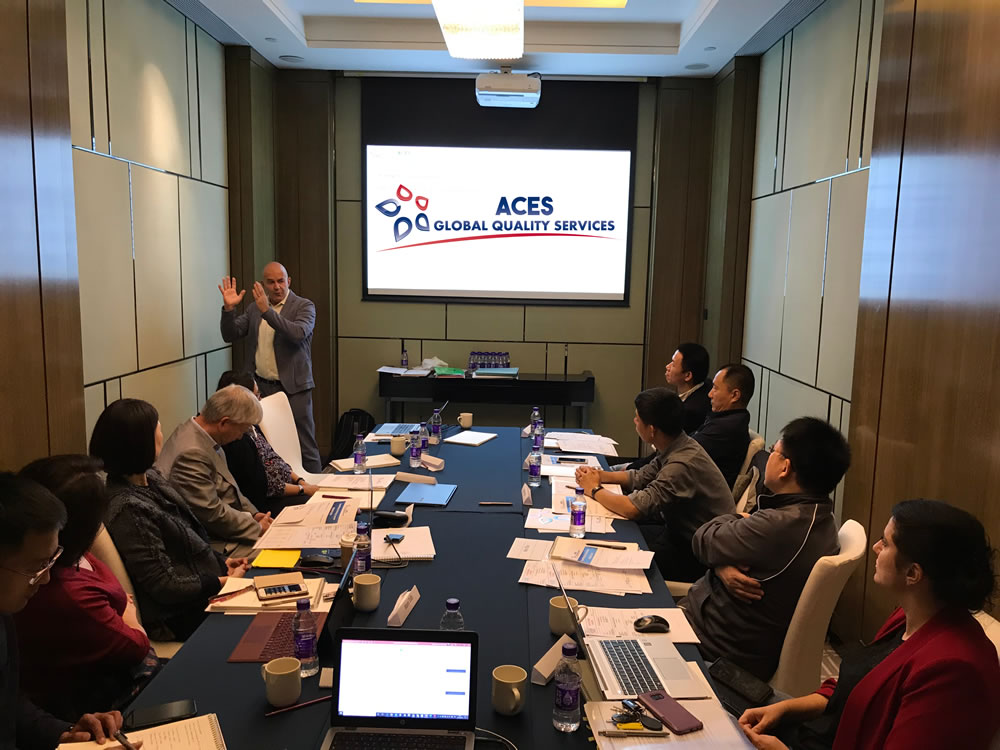The 90-Day Rush: Expediting Goods From China

Table of Contents
Strategic Sourcing for a 90-Day Rush
Getting your goods to you quickly starts long before they even leave China. Strategic sourcing is crucial for a successful 90-day rush.
Selecting Reliable Suppliers
Choosing the right supplier is paramount for fast delivery. Don't just focus on price; prioritize reliability and speed.
- Proven Track Record: Look for suppliers with a history of meeting deadlines and positive customer reviews. Check their online reputation on platforms like Alibaba and Global Sources.
- Production Capacity: Verify their ability to handle your order volume within your timeframe. Request references and inquire about their current workload.
- Geographical Location: Suppliers closer to major ports like Shanghai, Shenzhen, or Ningbo will generally offer faster transportation times. Factor this into your supplier selection.
- Negotiated Lead Times: Don't assume a lead time; explicitly negotiate it upfront and include penalties for delays in your contract. This incentivizes faster delivery.
- Supplier Audits: Consider conducting on-site audits to assess their facilities and capabilities before committing to a large order.
Streamlining the Order Process
Even with a reliable supplier, a poorly managed order process can cause significant delays.
- Detailed Specifications: Provide clear, comprehensive product specifications, including detailed drawings, material requirements, and quality standards. Avoid ambiguities that could lead to revisions.
- Digital Communication: Utilize efficient communication tools like email, project management software, and video conferencing for clear and timely updates.
- Clear Payment Terms: Establish upfront payment terms to ensure smooth processing of orders. Delayed payments can significantly delay production.
- Open Communication: Maintain consistent communication with your supplier throughout the process to monitor progress and address any potential issues proactively.
- Pre-Production Samples: Request and thoroughly inspect pre-production samples to ensure quality and avoid costly rework later.
Optimizing Transportation for Expedited Delivery
Once your goods are ready, fast and efficient transportation is key to meeting your 90-day deadline.
Choosing the Right Shipping Method
The shipping method you choose drastically impacts delivery time.
- Air Freight: For the fastest delivery, air freight is your best option. While more expensive than sea freight, it significantly reduces transit time.
- Express Courier Services: For smaller, time-sensitive shipments, express couriers like DHL, FedEx, and UPS offer rapid delivery.
- Cost-Effectiveness: Carefully weigh the cost-effectiveness of different methods against your timeline and budget. A slightly more expensive option may save you far more in the long run by avoiding costly delays.
- Freight Forwarders: Use experienced freight forwarders specializing in expedited shipping from China. They handle logistics, customs, and documentation, streamlining the process.
- Carrier Comparison: Get quotes from multiple shipping carriers to compare rates and transit times before making a decision.
Customs Clearance and Documentation
Navigating customs efficiently is crucial for avoiding delays.
- Advance Documentation: Prepare all necessary documents well in advance, including commercial invoices, packing lists, certificates of origin, and other required documentation.
- Customs Broker: Engage a customs broker experienced in expedited import procedures to navigate the complexities of customs clearance.
- Accurate Classification: Ensure accurate product classification codes (HS codes) to avoid delays due to misclassification.
- Import Regulations: Understand and comply with all relevant import regulations and requirements for your specific goods and destination country.
- Expedited Brokerage: Consider using expedited customs brokerage services to ensure faster processing of your customs clearance.
Risk Mitigation and Contingency Planning
Unexpected delays can derail even the best-laid plans. Proactive risk mitigation is essential.
Identifying Potential Delays
Identify potential bottlenecks early to prepare for them.
- Supply Chain Analysis: Analyze your entire supply chain, from raw material sourcing to final delivery, to identify potential bottlenecks.
- Contingency Plans: Develop backup plans for potential disruptions, such as supplier delays, factory closures, port congestion, or natural disasters.
- Buffer Time: Build buffer time into your schedule to account for unexpected delays. It's better to be slightly ahead of schedule than behind.
- Shipment Monitoring: Regularly monitor the progress of your shipment using tracking tools and communicate any concerns promptly to your supplier and freight forwarder.
- Real-Time Tracking: Utilize real-time shipment tracking tools to monitor the location and status of your goods.
Negotiating Flexible Contracts
Your contracts should be designed to support a rapid delivery.
- Expedited Delivery Clauses: Include explicit clauses in your supplier contracts specifying expedited delivery requirements and penalties for delays.
- Penalty Clauses: Negotiate clear penalties for missed deadlines to incentivize timely delivery.
- Communication Protocols: Establish clear communication protocols for addressing unforeseen issues and resolving problems quickly and efficiently.
- Supplier Relationships: Cultivate strong relationships with your suppliers for better communication, problem-solving, and cooperation.
- 3PL Utilization: Consider using a third-party logistics provider (3PL) for comprehensive supply chain management and risk mitigation.
Conclusion
Successfully expediting goods from China within a 90-day timeframe requires meticulous planning and strategic execution. By carefully selecting suppliers, optimizing transportation, and implementing robust risk mitigation strategies, businesses can significantly reduce lead times and receive their products promptly. Remember to leverage air freight, express courier services, and efficient communication throughout the process. Don't delay – start planning your expedited goods delivery from China today!

Featured Posts
-
 Tramp Sanktsii Protiv Rusi A Ako Nema Primir E Do Kra Ot Na April
May 27, 2025
Tramp Sanktsii Protiv Rusi A Ako Nema Primir E Do Kra Ot Na April
May 27, 2025 -
 Nora Fatehis Golden Oscars Appearance A Stunning Arrival
May 27, 2025
Nora Fatehis Golden Oscars Appearance A Stunning Arrival
May 27, 2025 -
 Kanye Wests Super Bowl Snub Taylor Swift Feud Explained
May 27, 2025
Kanye Wests Super Bowl Snub Taylor Swift Feud Explained
May 27, 2025 -
 Ukraina Na Puti V Nato Germaniya Podtverzhdaet Svoyu Podderzhku
May 27, 2025
Ukraina Na Puti V Nato Germaniya Podtverzhdaet Svoyu Podderzhku
May 27, 2025 -
 Inside The Uproxx Music 20 Interview With Simone Joy Jones
May 27, 2025
Inside The Uproxx Music 20 Interview With Simone Joy Jones
May 27, 2025
Latest Posts
-
 Legal Blitz Djokovics Player Union Takes On Governing Bodies
May 30, 2025
Legal Blitz Djokovics Player Union Takes On Governing Bodies
May 30, 2025 -
 Roland Garros How The Crowd Treats Visiting Players
May 30, 2025
Roland Garros How The Crowd Treats Visiting Players
May 30, 2025 -
 French Open 2024 Sinner And Djokovics Path To Victory
May 30, 2025
French Open 2024 Sinner And Djokovics Path To Victory
May 30, 2025 -
 Djokovics Union Files Lawsuits Against Tennis Authorities
May 30, 2025
Djokovics Union Files Lawsuits Against Tennis Authorities
May 30, 2025 -
 Djokovic And Sinners French Open Contention
May 30, 2025
Djokovic And Sinners French Open Contention
May 30, 2025
